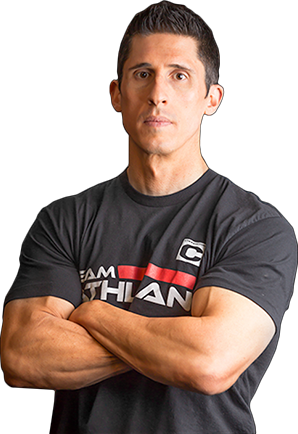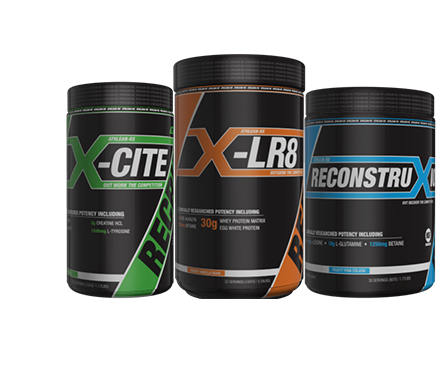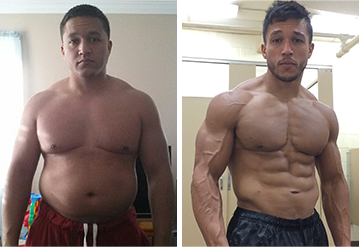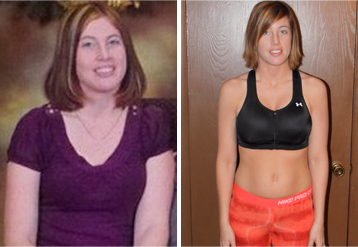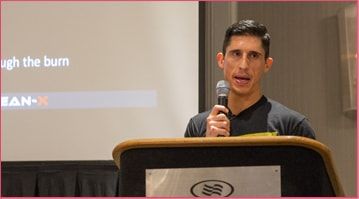 New here? Like Athlean-XX for Women on Facebook to stay up to date with new posts, great fitness and nutrition articles, motivations and inspirations, fitness challenges, Q&As, giveaways and more!
New here? Like Athlean-XX for Women on Facebook to stay up to date with new posts, great fitness and nutrition articles, motivations and inspirations, fitness challenges, Q&As, giveaways and more!
This year is coming to a close, and a new year is beginning with each of us planning positive changes for our health and fitness. As you begin to think about and take action on New Year’s Resolutions, let’s have a look at some of the most important health and fitness advice and research from 2012. These important takeaways from 2012 will help you shape your weight loss and fitness goals in the coming year!
Here are the top 5 most important health and fitness takeaways for 2012:
 1) Hours of Cardio Isn’t The Best Weight Loss Strategy
1) Hours of Cardio Isn’t The Best Weight Loss Strategy
Although it might run contrary to what you’ve heard or always believed, hours of cardio – whether it be the group exercise classes at the gym, treadmill/elliptical or running – has its downsides for weight loss and fitness. While it does burn calories, cardio has the unfortunate side effect of making you hungrier, and the more cardio you do the hungrier you’ll be. Cardio also causes injuries due to repetitive motions as well as high-impact movements. Many cardio devotees and runners tend to overtrain, which causes its own set of injury and weight loss problems. Cardio also doesn’t do much to build muscle, and muscle helps burn calories even while you’re not exercising. For this reason, a shorter circuit strength type workout can be even more effective for weight loss than hours and hours of cardio! Finally, every day more trainers and experts in the fitness media are advising that weight loss is 80% diet and only 20% exercise (see #3). For more information about why cardio doesn’t work for weight loss, why overtraining can be harmful and why strength training large muscles like your legs is a more effective weight loss strategy, check out these articles:
4 Reasons Why Cardio Doesn’t Work for Weight Loss
5 Reasons To Boost Your Leg Workout
 2) If You’re Don’t Get Enough Sleep, You Won’t Lose The Weight
2) If You’re Don’t Get Enough Sleep, You Won’t Lose The Weight
Exercise and diet are the only two factors ever discussed as being effective for weight loss. But, new studies are showing that there’s a third factor that’s equally crucial – SLEEP. It seems counterintuitive that more rest would help with weight loss instead of more activity, but it’s proving to be true. Levels of several hormones involved in appetite are affected by sleep including leptin, ghrelin, cortisol and orexin. If you’re not sleeping enough, the amounts of these hormones increase causing you to feel hungrier and eat more. Lack of sleep also causes our body to hang onto its fat as part of a defense mechanism. If we’re consistently lacking sleep, we’re chronically short on energy, so the body will conserve whatever source of energy it can (that means hanging onto instead of burning our body fat) to be used later. For more information on sleep and weight loss, see this article:
5 Steps To Decrease Your Body Fat Without Changing Your Diet Or Exercise
More and more these days, we’ve begun to hear the axiom that weight loss is 80% diet and 20% exercise. In fact, more trainers and experts have begun to talk about it online are starting to recommend this strategy for weight loss and weight maintenance. So what dietary changes are necessary to maximize weight loss? First, don’t skip meals, especially breakfast! It’s very important to keep insulin levels stable in order for your metabolism to work its best, so eating 5 – 6 small meals spaced evenly throughout the day is a good weight loss strategy. ‘Clean eating’ healthy whole foods is the best strategy for nutrition, and ensuring adequate intake of healthy fats and proteins is very important to healthy muscle growth and satiety. Making smart choices when eating away from home and keeping a food journal are two techniques to help you keep your weight loss goals in check. Check out these articles to make the most of that 80% rule:
Weight Loss is 80% Diet: 5 Tips For Mastering The 80% Rule
What’s It Really Mean To Eat Clean: The Celebrity Clean Eating Trend
Eat Fat To Burn Fat? Why Fats Are Important For Weight Loss
Breakfast of Champions: Are You Eating The Worst Trap Food For Breakfast?
Top 10 Restaurant Eating Mistakes To Avoid
5 Reasons Why Eating Small Frequent Meals Helps With Weight Loss And Health
5 Reasons To Keep A Food Journal That Don’t Involve Calories
4) Sugar AND Artificial Sweeteners Will Sabotage Your Weight Loss
Did you know that sugar has addictive qualities? Depending on your own personal sensitivity to it, even a little bit can sabotage your weight loss goals by causing you to crave more sugar or other types of carbohydrates. Sugar also causes insulin spikes and crashes that can bring your metabolism to a screeching halt as it tries to conserve energy (in the form of your body fat!) to avoid these ups and downs. If you find that you’re sensitive to sugar’s addictive effects, it may be better to leave it behind. But did you know that even artificial sweeteners can cause problems for your weight loss goals? Some studies have begun to show that whenever you eat something sweet, even if it isn’t real sugar, it signals to your body that calories are on the way and triggers a set of metabolic responses to prepare the body for these incoming calories. When these calories don’t come, the body may signal you to eat more – even more than you would have had you consumed real sugar in the first place! Illustrating these effects, a recent study by the University of Texas Health Science Center San Antonio showed that people who drank two Diet Cokes per day experienced 500% greater increases in waist circumference than those of non-drinkers! The best strategy is to seek sweets in the form of fruit, which doesn’t have such a drastic effect on your insulin levels. For more information about the effects of sugar and artificial sweeteners, see these articles:
Spike, Crash And Burn: How Even A Little Sugar Could Be Sabotaging Your Weight Loss and Workouts
Suspiciously Sweet: How Artificial Sweeteners Can Hinder Weight Loss
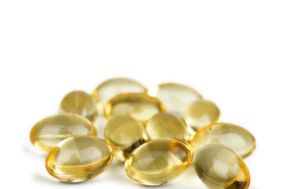 5) Some Supplements Can Help With Weight Loss
5) Some Supplements Can Help With Weight Loss
While we don’t recommend ‘weight loss’ supplements, there are some vitamins and other supplements that can help with weight loss. First, getting adequate protein is important to help keep you full and to help you build lean muscle (which in turn will help you burn more calories). A protein powder supplement can help to ensure you get enough daily protein in your diet. Omega 3 fatty acids help increase your metabolism and fat loss by increasing sensitivity to insulin. Recent studies also show that Omega 3s can also help your body more effectively utilize dietary protein to boost muscle growth. Vitamin D is another nutrient that increases insulin sensitivity, thereby helping to decrease fat storage. Lack of vitamin D may also interfere with leptin, the hormone in your body that signals your brain to stop eating when you’re full. A few other vitamins like vitamins B, C and Calcium are also important to your weight loss goals and overall health. For more information on these supplements and weight loss, see these articles:
The Scoop On Protein Powder: Should Women Take Protein Supplements?
Why Are Omega 3 Supplements Important For Weight Loss and Muscle Recovery?
Are You Vitamin D Deficient? Why D is Crucial To Your Health And Fitness
Top 4 Vitamins For Workouts: Muscle Endurance And Weight Loss
If you’re looking to make a positive change for health this year…one that is a true, sustainable lifestyle change, start your year off on a positive foot with Athlean-XX for Women. Our flexible nutrition and exercise plan are designed to be used for life – not just 90 days. You’ll be amazed what 30 minute daily workouts and the right type of healthy nutrition can do for you! This year, resolve to make positive changes for your health and fitness. Join us on Team Athlean today to find out how great sustainable lifestyle changes can feel!



